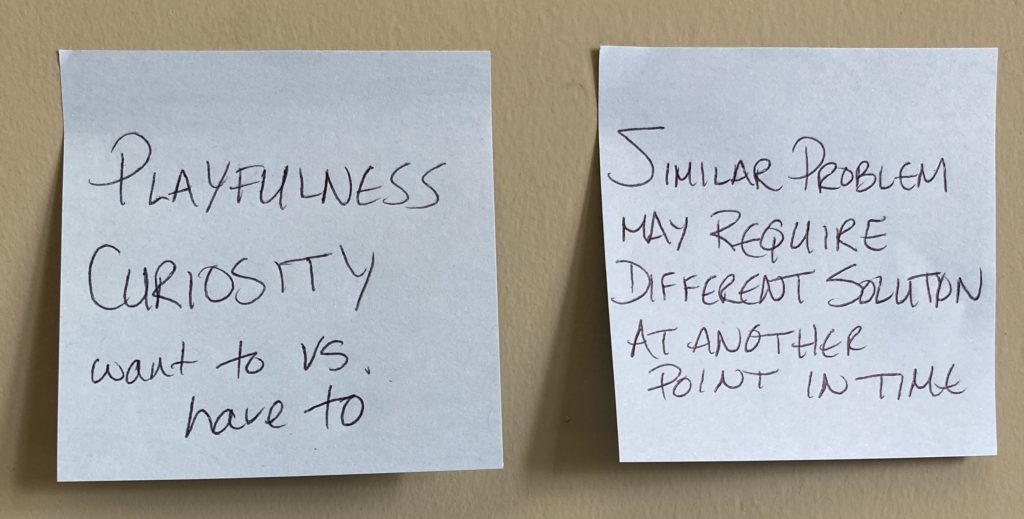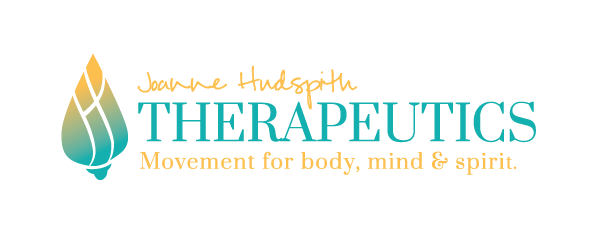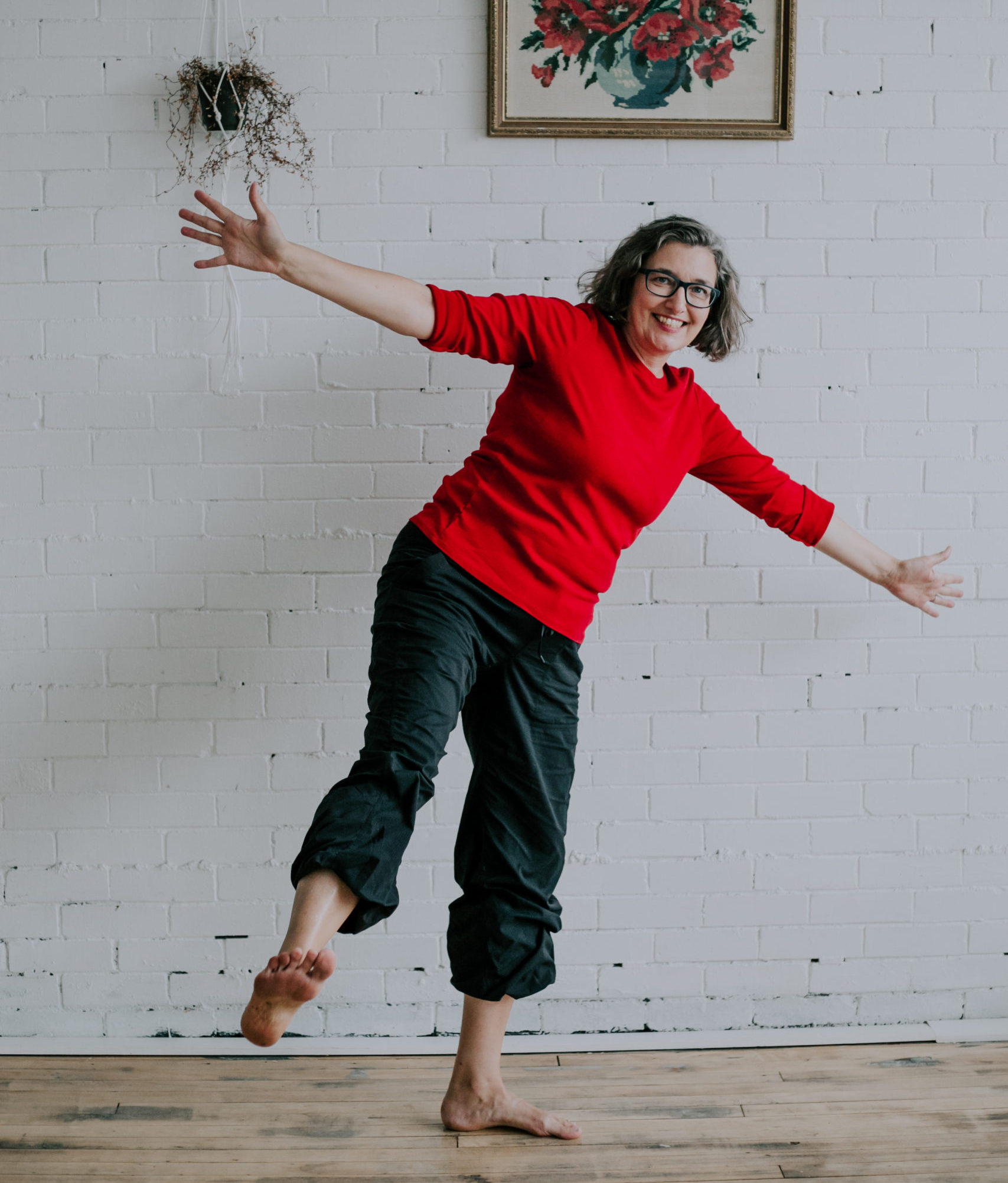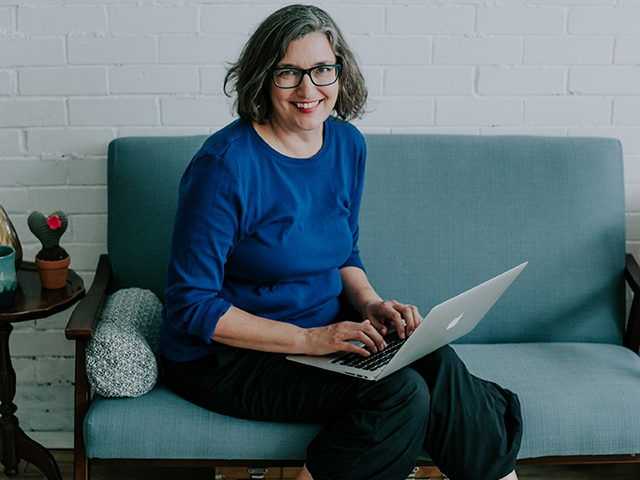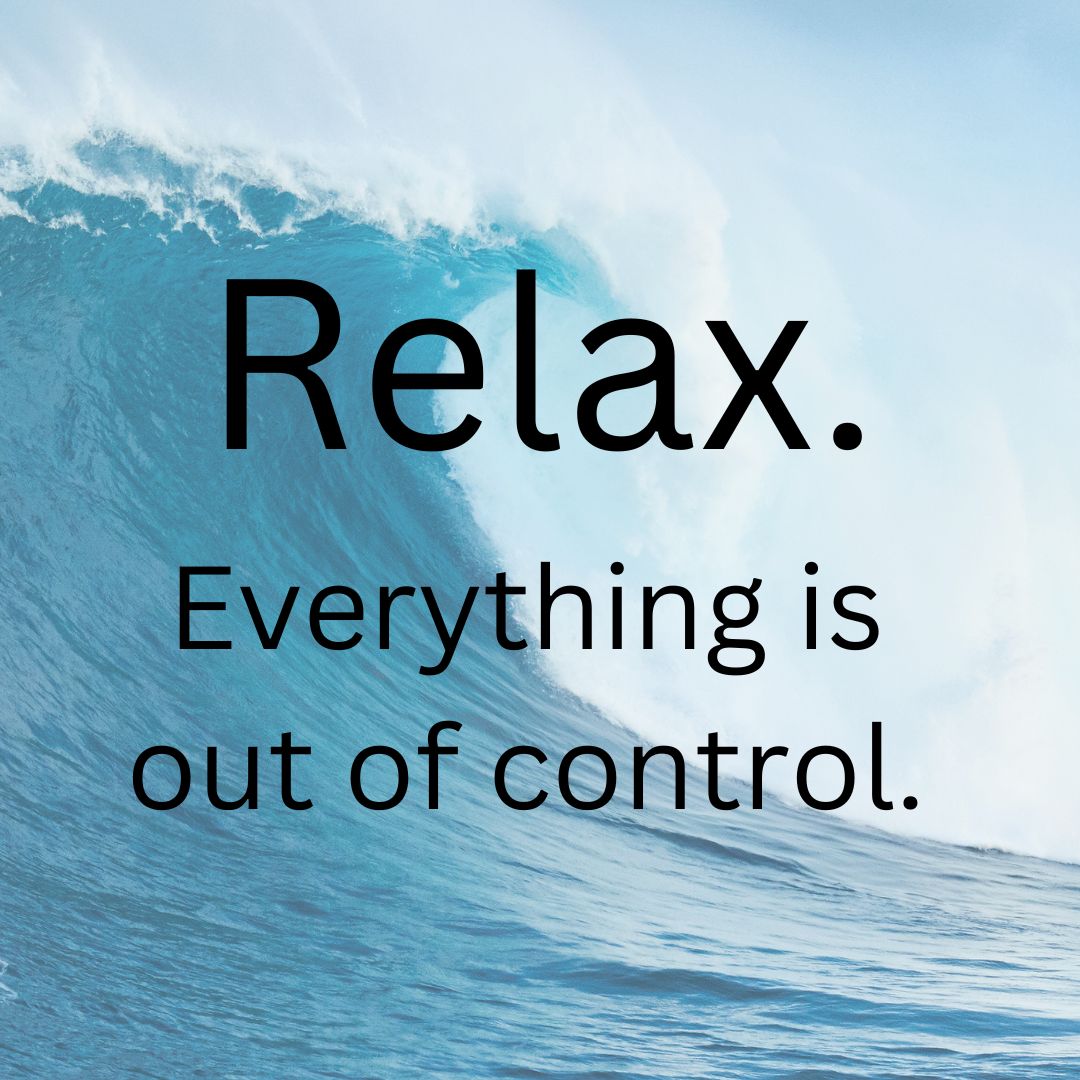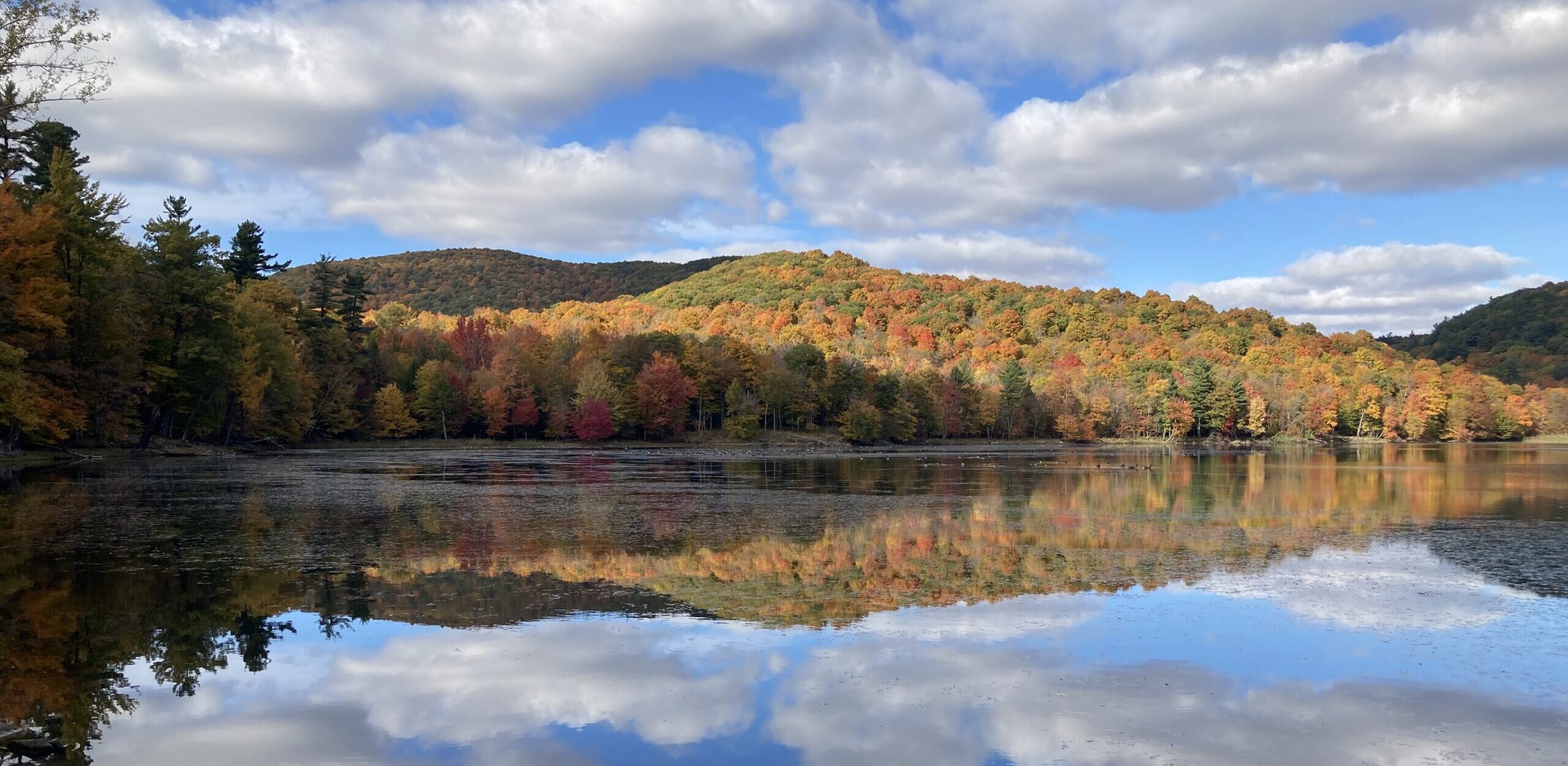To keep myself focused and organized as I’m writing my book, I’ve plastered the wall of my office/studio/spare room with post-it notes on which I’ve written thoughts and ideas that I want to include. They create a visual map for me to follow as I’m writing and serve as both inspiration and reminders for my teaching.
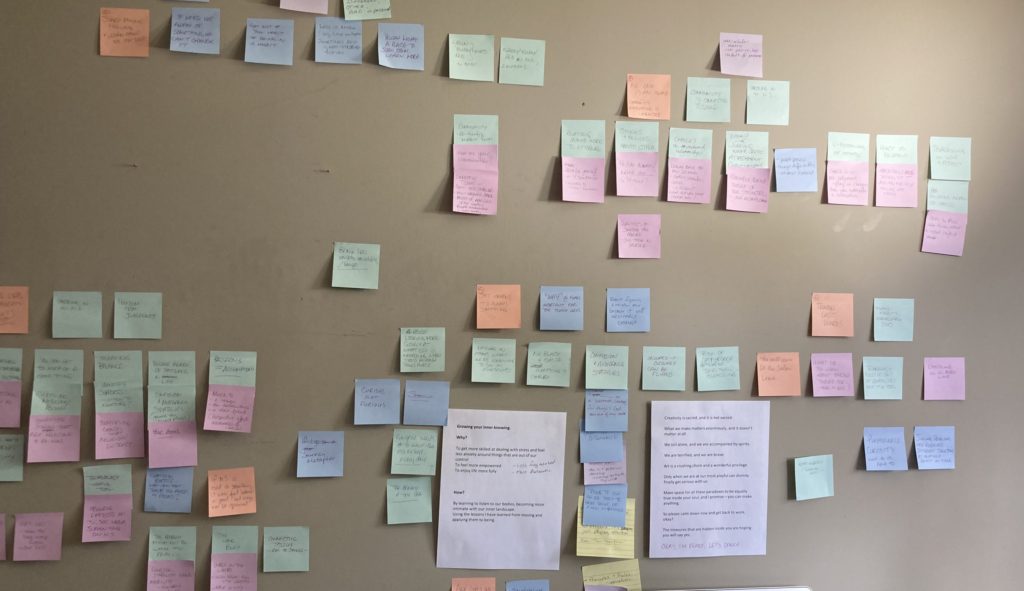
Two notes caught my eye the other day – one says “Playfulness. Curiosity. want to vs. have to.” The other says, “Similar problem may require different solution at another point in time.”
These notes are an invitation to be open to different ways of doing things and a reminder not to take things too seriously – both important concepts when we think about building emotional and physical resilience.
They captured my attention after teaching the other day because I’ve been talking to people about the ways our activities are shifting as the seasons change, and I’m aware that what my students need from a class is likely different today than it was a few months ago. Some of us are getting back onto our bikes or returning to the hiking trails that were too icy or muddy through the winter. Some of us have been back in our gardens, cleaning up after winter, preparing for the growing season and planting seeds and annuals. Some of us are back on the golf course or tennis court, or playing with nieces, nephews or grandchildren. How have your activities changed over the past month?
It’s interesting to notice how, even as our activities shift, we may be quite rigid in the ways we think about exercise. We harbour assumptions about the correct length of a workout or exercise class, about what we label as exercise and what we label as play, about right ways and wrong ways to do exercises.
Our nervous systems love habits and patterns. We get used to whatever we’re doing and the way that we’re doing it, and it doesn’t take long for that to feel “right” or “natural,” and it soon becomes uncomfortable to do things differently. (If you’re not sure, try sitting in a different spot at your table for your next meal!)
I wonder if you can give yourself permission to be curious and playful about the ways that you’re moving, how you’re feeling, and if there’s some wiggle room around the ways you define exercise. If you’re spending more time outdoors and moving around, maybe you don’t need to spend as much time at the gym. If you’re spending a lot more time in the garden and your back is feeling the effects, can you incorporate some movement snacks into your day to help ease tension and build stability? If you’re looking ahead to a road trip or a camping adventure, are there ways you can be proactive about the effects of sitting in a car for hours on end, paddling a canoe or spending a few days without the support of your bed and sofa?
Interested in bringing more playfulness into your life? Check out this free article from the New York Times.
One of the joys of writing a book is in the learning that happens as I do my research. It’s amazing how much has been discovered about the brain and the nervous system in the last twenty years. My deep dive into the nervous system has led me to some books that have had a profound effect on the ways I perceive myself and the world around me. If you’ve ever wondered why you always do things a certain way, or why it’s so difficult for someone else to see something that’s completely obvious to you, have I got a book for you! In “Deviate: The Science of Seeing Differently”, Beau Lotto describes how the human brain has evolved, how we’re hard-wired to avoid uncertainty, and the role perception plays in this. He discusses the assumptions and patterns acquired through our DNA and life experiences, the ways they affect and control our perception and behaviour, and how we might start to change our brains and the ways we see ourselves and others.
If you’re curious about Beau Lotto, but not ready for a deep dive, check out this TED talk about how we experience awe.
